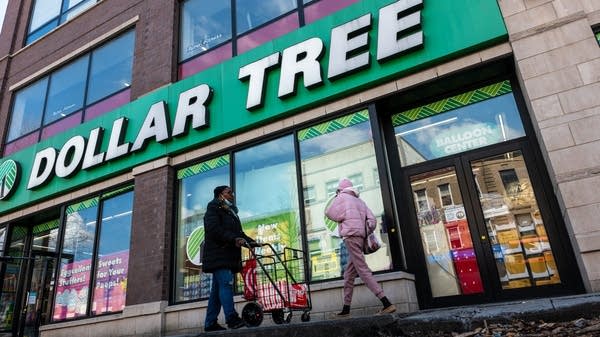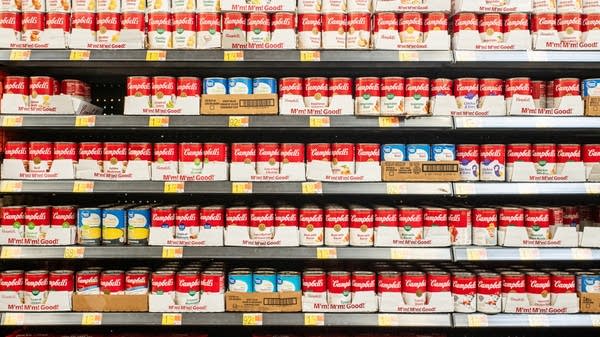How outdoor brands are feeling tariff hikes
The U.S. is a big market for clothes and gear for hiking, fishing and climbing. But most of these products are made overseas.

In Boulder, Colorado, with the foothills in the distance, lies a warehouse filled with rows and rows of shoes.
“Rock climbing shoes, mountaineering boots, trail running shoes, hiking boots and approach shoes,” said Jonathan Lantz, scanning the shelves.
This is the North American headquarters for La Sportiva, a company based in the Italian Alps that makes shoes for mountain sports. Lantz is in charge of this region of the business. He said the shoes come from all over the world — Italy, Romania, China and Vietnam — before they’re shipped to retailers and customers.
La Sportiva sends all these shoes to Boulder because it's a destination for outdoor enthusiasts. Climbers flock to the slanted flatirons that rise dramatically just outside the city.
“We're a very big part of the U.S. rock climbing business,” Lantz said. “So it makes sense to have us centered here.”
Outdoor activities are a big industry in the U.S., contributing about $1 trillion to the economy. But much of the clothes and equipment for hiking, skiing, fishing and more is made overseas. Apparel manufacturing is hard to pull off here; China and other countries have entire industries devoted to making fabrics, creating buttons and zippers, and putting clothing together all in one factory. The same goes for outdoor apparel and other gear.
Lantz said it’s not clear what the U.S. market will look like for his global company going forward because of President Donald Trump’s chaotic tariff moves. It’s now more expensive to bring shoes to the U.S. to sell here.
“You can't absorb that,” Lantz said. “You can't sell a product to a retailer like REI and lose money.”
He said La Sportiva will probably need to raise prices for consumers. That’s even though President Trump put higher country-specific tariffs on hold until early July.
“It's a constant juggle,” he said.
Keeping up with trade policy has also been a juggle for Travis Campbell. He’s the owner and CEO of adventure travel company Eagle Creek. It manufactures in Indonesia – duffels and packing cubes for organizing clothes in luggage. Campbell said he’s happy Trump paused some tariffs for a little while.
“But it actually doesn't change anything,” Campbell said, “because we don't know what's on the other side of those 90 days.”
Eagle Creek is based in Steamboat Springs, Colorado. Faced with an additional 32% fee on Indonesian imports, Campbell held off on salary bumps and hiring.
“We had a big discussion around, does the 90-day pause give us confidence to push through those increases? And it doesn't,” he said.
The Trump administration claims these policies will entice manufacturing back to the U.S.
But Mallory Ottariano said that would take a long time. The company she founded, Youer, sells colorful fleece hiking dresses and floral athletic shorts. The clothes are made in the U.S. in a Los Angeles factory. Ottariano has been posting on social media about how tariffs are still affecting her business. Some of her fabric comes from China.
“There's always tons of people in the comments saying, ‘Well, just make it yourself,’” Ottariano said.
But she said that’s not realistic.
“The infrastructure to create a fabric mill is absolutely intense; the talent and workforce does not exist in this country. The scale that's needed to support apparel is not existing in this country,” she said.
Ottariano has pivoted to buy most of her material from countries other than China. She hopes products made in the U.S. will have their moment. But she worries more about consumers tightening their spending and maybe passing on bright, funky-patterned outdoor clothes in an uneasy economy.













